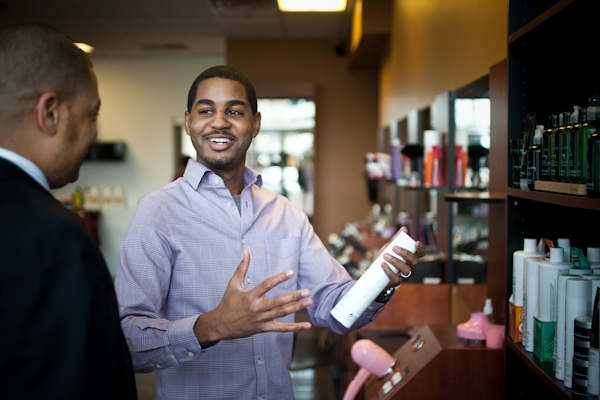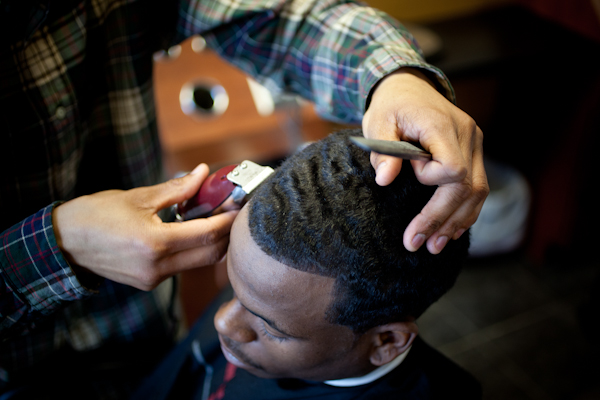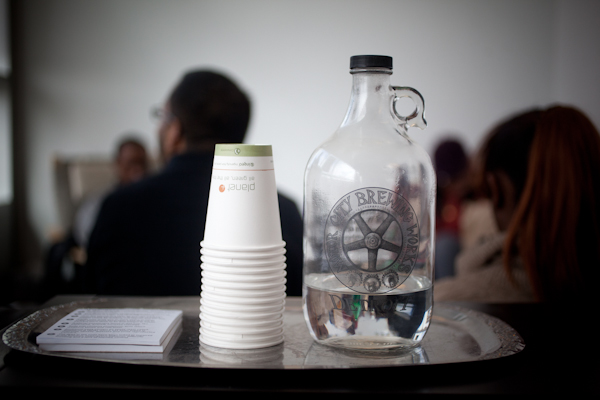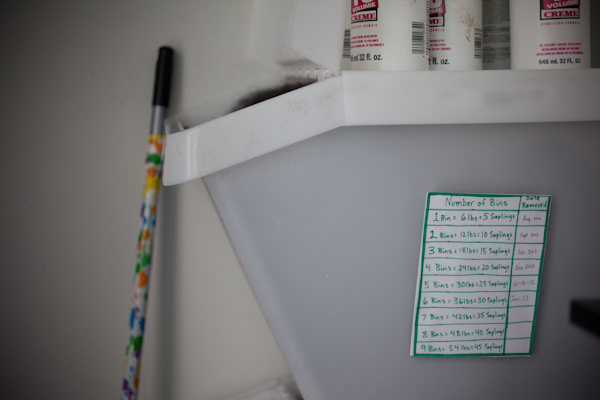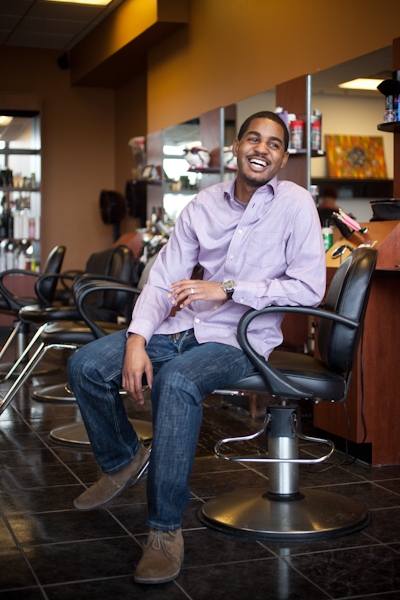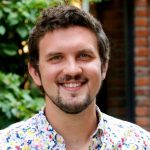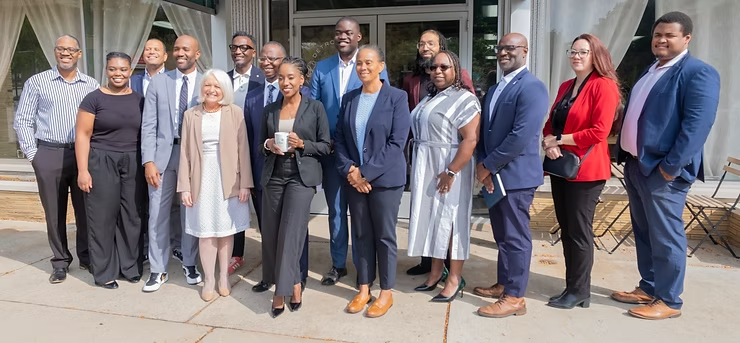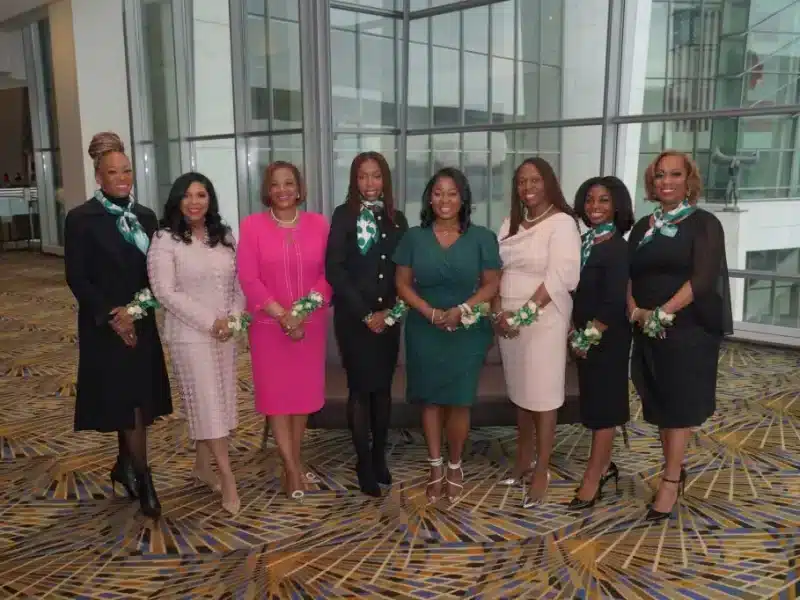Green City Diaries: Shear Innovation, Part 1
Sustainability and hair styling go hand in hand, says Green City diarist Matt Piper, who visits the Social Club Grooming Company this week and Curl Up and Dye next week to find out what they are doing to positively impact the environment.
Here’s something pretty remarkable about sustainability in action: when it comes to considering the social and environmental impacts of business practices, there is opportunity for innovation and continuous improvement in every kind of human endeavor. The sustainable ethic, in other words, is both global and adaptable. It has to be, or we’re doomed. In the long term, only like-minded efforts by leaders from every industry at every scale, from building to baking, will truly change the world.
I mention this because the green leaders we’re focusing on in this two-part story couldn’t work in a more different environment than the folks at Detroit Diesel, the large-scale industrial operation we profiled in January. But, motivated by the same passions, they are engaged in a similar daily struggle: to remain profitable while finding ways to uplift the local community and help heal our beleaguered planet.
Sebastian Jackson and Jen Willemsen don’t work in an industry that’s usually thought of as a hotbed of eco-conscious innovation, but if the two of them are any indication, now is a good time to start rethinking that. Detroit, meet your sustainable stylists.
This week we’ll get to know Sebastian, who owns The Social Club Grooming Company, an almost year-old barbershop, salon, and day spa on Wayne State’s campus. Next week we’ll talk to Jen Willemsen, the owner of Curl Up and Dye, a mile down the street.
Sebastian, 26, previously worked as a barber at Salon X, which used to occupy the building that now houses the Social Club. After Salon X closed a couple years ago, Sebastian took over the business while finishing up a degree in public relations at WSU, and got to work right away building the more responsible business he’d dreamed of.
The “social” in Social Club refers to two things (“I really like double entendres,” Sebastian tells me). The shop is meant to be a space where people can feel comfortable hanging out and talking (he plans to add a tech bar and a small kitchen soon), and also where the different kinds of people who congregate on a university campus can meet in a casual setting. Sebastian’s goal is to get professors and students, professionals and emerging professionals, and people of all ethnicities talking, in order to build meaningful connections between them. (That’s where another double meaning comes in — “grooming” means taking care of your body, but also getting prepared for professional life.)
“Social” also refers to social responsibility. Sebastian is committed to making the Social Club the most socially conscious business he can. “Environmental sustainability,” as he puts it, “is about changing our habits. We just have to change our mindsets and behaviors and the environment will take care of itself.”
He’s been working with a team of volunteers at the Green Garage for the last nine months to help develop his business’s triple bottom line. It’s a slow process (being documented here), because the team is diving deeply into five areas for improvement: waste, water, energy, toxicity of products, and the cultivation of a learning community so that the shop never stops improving. They’ve just started work on energy after wrapping up with waste, which included reducing paper and plastic consumption, recycling, and the environmentally conscious disposal of hair.
It was actually hair disposal that first got Sebastian thinking about more sustainable salon practices. He was working at Salon X in 2010 when the Deepwater Horizon Ocean Spill occurred. A customer came in and told him that a non-profit organization was soliciting donations of human hair to create nets that would help absorb the oil spill. Sebastian sent a box but, in the end, the organization received so much hair that it started discouraging donations. More dishearteningly, BP refused to use the hair in its clean-up efforts.
How else, then, could cut hair be put to productive use? How about as compost? Sebastian and the Green Garage team did some research and discovered that human hair is high in nitrogen, a primary nutrient for plants. In fact, the nitrogen content of hair is three times higher than it is in manure, making it an ideal compost ingredient.
Since that discovery, Sebastian and his team at the Social Club have been separating colored from uncolored hair after they cut it, and sending the latter to Palmer Park, where it’s added to compost piles that will eventually be used to help grow apple trees. (The colored hair contains metals and chemicals that are potentially hazardous. A little unsettling, isn’t it, that something in your hair might be toxic to plant life? We’ll get a closer look at the hazards of the beauty industry when we talk to Jen Willemsen next week.)
Sebastian is thrilled that hair from his shop will be used to help trees grow at the beginning of their life cycles, when nutrient uptake is most important. He mentions the focus on green infrastructure in the recently released Detroit Future City report, saying, “Trees are the most important thing. We need to be a tree community. Detroit knows that — we just have to get there.”
His enthusiasm for the natural environment is abundant, but Sebastian has had to learn how to transform that enthusiasm into effective leadership. At first, energized by his meetings with the Green Garage group, he tried to implement too many changes at the Social Club too quickly, and his team of seven, including staff stylists and independent contractors, pushed back.
“Changing behavior is challenging,” he acknowledges. “If you move too fast, you create conflict. It was hard, at first, to realize that not everybody was going to be as excited as I was about this. But learning each other, learning how we all perceive things, is a part of leadership. That takes time.”
In the end, Sebastian, who likes being located on a university campus because of the “let’s change the world” attitude of the people around him, wants to “disrupt the industry,” as he puts it, another process he knows will take time.
But the process of change starts simply, with conversations that lead to awareness. Sebastian is carefully cutting a customer’s hair and meticulously trimming his beard while we’re talking, and all around us in the bustling salon are barbers, stylists, and customers, listening.
Green City Diaries is a co-production of Model D and the Green Garage Urban Sustainability Library. Join us next week for Shear Innovation Part 2.
Photos by Marvin Shaouni
